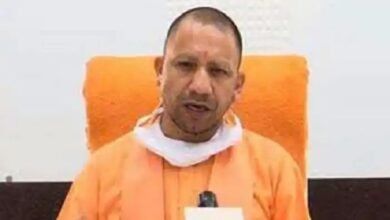[ad_1]
Today, a filmmaker from Kolkata arrived to film my work on Maulana Abul Kalam Azad. Since 1990, my academic work has mostly been on Azad. Azad was in my DNA. I had grown up listening to my elders talk reverentially about him. They all called him “Maulana”, as if there was only one Maulana in the world. Some followed his translation, explication and commentary on the Quran, others loved him for his erudition — he was a voracious reader, a master of Farsi, Arabic, French, Latin and Greek — while several admired his writing. Many, such as my family, admired his lifelong commitment to Hindu-Muslim unity. It all started when he was 16 or 17 and joined the guerrilla movement called Jugantar in Bengal. That commitment continued until the end of his life when he addressed terrified Muslims on the brink of mass exodus to the newly-created state of Pakistan. On December 15, 1947, from the steps of the Jama Masjid in Delhi, he said to the crowds, “Kahan ja rahe ho aur kyun jaa rahe ho? (Where are you going and why?)”
When the Partition Resolution was on the table, three men of conscience refused to sign it: Gandhiji, Khan Abdul Ghaffar Khan and Maulana Azad. The Pathan spoke seven words to his comrades, words that were emblazoned on the heart of every Indian: “You are throwing us to the wolves.” Azad spoke four words: “Over my dead body.’’ Gandhi’s anguish was palpable, but being the Mahatma, he bowed before his friends and the die was cast.
This was 24 years after Azad, as the youngest Congress President, spoke these immortal words at the session in Delhi on December 15, 1923: “If an angel were to descend from heaven and declare that India would get Swaraj in 24 hours, provided she relinquishes Hindu-Muslim unity, I will answer, ‘Never’. If Swaraj is delayed, it will be a loss for India, but if Hindu-Muslim unity is lost, it will be a loss to humanity.”
This week, it will be 100 years since Azad spoke these words. In a few weeks, it will be 2024. Hindu-Muslim ittehad (unity) is at stake as never before. The angel has descended and made his declaration, but he has been shown his place. Indians are being swept by a tsunami of hate. They don’t know what is in store for the future. Hate is the favoured word; expressions like “mohabbat ki dukaan” are sniggered at. A newspaper recently reported a speech in Parliament with the headline “Nehru ki galtiyon ka khamyaza Kashmir ko bhugatna pada (For Nehru’s mistakes, Kashmir suffers).”
Some years ago near the very Calcutta where Azad grew up, a place called Kakinara hit the headlines. Some miscreants armed with pickaxes vandalised his statue that stood in the market square. Today, obscenities uttered in the name of religion in Parliament are greeted with smiles by venerable Members. How long before some eager (to please) hands tear down the portraits of all the Muslims from its halls and corridors? If Azad goes, then a whole slew of freedom fighters will follow. Gandhi’s lathi, spectacles and langot may save him for a few days.
As I talked to Anindita, the filmmaker, we both cried; me with a lifetime filled with hope behind me, she with a lifetime filled with hopelessness ahead of her. Sitting near us and happily oblivious was her beautiful bespectacled six-year-old son, eating a chocolate pastry. She and I talked of my uncle, the filmmaker K A Abbas, an unabashed admirer of Nehru. I used to love the lines from a song in his film Rahi, about tea garden labourers in Assam: “Julam dhha le, tu sitam dhha le/ Hamare bhi to din hain aane waale (Take down oppression, take down suffering/ Our day, too, will come).”
Ever an optimist, even after witnessing so much violence — Partition, Kashmir, Gujarat, Delhi, Manipur — today, I grope about in the endless darkness in which my country has been enveloped.
The writer is former Member, Planning Commission.
[ad_2]





